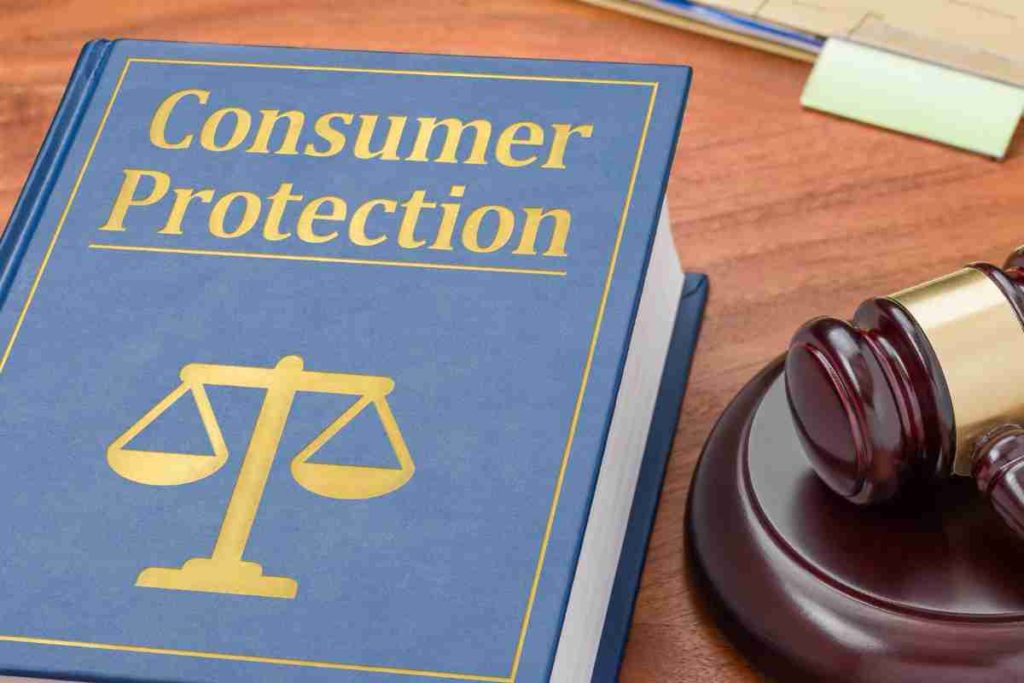USA’s Consumer Protection Laws: Ensuring Fair Trade:- Consumer protection is a cornerstone of a robust and fair economy. In the USA, consumer protection laws have been enshrined to ensure that the rights of consumers are not infringed upon and they are afforded an equitable marketplace. This comprehensive guide delves deep into the intricate mechanisms of the USA’s consumer protection laws, shedding light on their importance, evolution, and enforcement.
A Brief Overview of USA’s Consumer Protection Laws
At their core, consumer protection laws in the USA are designed to ensure that consumers have access to accurate information, fair pricing, and safe products. These laws prevent businesses from employing deceptive practices, misrepresenting products, or engaging in fraud.
Also, Read Crafting the Perfect Resume for International Students
Historical Context: The Advent of Consumer Rights
The movement for consumer rights in the USA gained momentum during the early 20th century. As industries grew, so did the need for regulations to protect consumers from unfair business practices. The Federal Trade Commission (FTC) was established in 1914, marking a pivotal moment in the evolution of consumer protection laws.
Key Consumer Protection Acts and Their Provisions
- The Federal Trade Commission Act (1914) created the FTC, whose mission is to prevent deceptive and unfair business practices. The FTC has the authority to take action against deceptive advertisers and fraudulent business operations.
- The Consumer Product Safety Act (1972): Established the Consumer Product Safety Commission (CPSC), this act empowers the CPSC to set safety standards for consumer products and recall products deemed unsafe.
- The Fair Debt Collection Practices Act (1977): This act regulates the practices of debt collectors, ensuring that they do not employ abusive, unfair, or deceptive methods to collect debts.
- The Truth in Lending Act (1968): Designed to promote informed use of consumer credit, this act requires clear disclosure of credit terms so consumers can compare and make informed decisions.
Enforcement Mechanisms: Holding Businesses Accountable
Various federal and state agencies work in tandem to enforce consumer protection laws. The FTC, for instance, has the mandate to ensure that businesses do not engage in deceptive advertising. Meanwhile, the CPSC ensures that products sold to consumers are safe for use.
When violations occur, these agencies have the authority to issue fines, enforce recalls, or even take legal action against companies. Additionally, consumers have the right to file complaints if they feel their rights have been violated.
The Impact on Modern Trade
The USA’s consumer protection laws have played a pivotal role in shaping modern trade practices. Companies are now more transparent, and there’s a greater emphasis on product safety and quality. These laws have not only protected consumers but also paved the way for healthier competition in the market.
Challenges and the Way Forward
While the USA’s consumer protection laws are comprehensive, challenges persist. The digital age has introduced new forms of deceptive practices, such as online scams and data breaches. Adapting to these changes and ensuring that consumer rights are protected in the digital realm is paramount.
Moreover, as global trade continues to expand, there’s a pressing need for international collaboration to ensure that consumer rights are upheld across borders.
The Nuances of Digital Consumer Protection
In the age of technology and e-commerce, the landscape of consumer protection has significantly evolved. While the core principles remain the same—protecting the consumer from unfair and deceptive practices—the medium through which consumers purchase products and services has changed dramatically.
The Rise of E-commerce and Its Implications
E-commerce has transformed how consumers shop, bringing unparalleled convenience and many choices. A product from halfway around the world can be delivered to one’s doorstep with a simple click. However, this convenience comes with challenges:
- Cybersecurity Threats: The digital marketplace is rife with threats from data breaches to phishing scams. Protecting consumer data is paramount, with laws such as the General Data Protection Regulation (GDPR) in Europe setting the tone for stringent data protection norms.
- Misleading Online Reviews: Fake reviews can paint a misleading picture of a product or service. Regulatory bodies are cracking down on businesses that manipulate these reviews to deceive consumers.
- Digital Payment Frauds: As digital transactions soar, so do the attempts at fraudulent activities. Ensuring secure and transparent digital payment systems is crucial.
Consumer Education: The First Line of Defense
While regulatory frameworks play a crucial role in protecting consumers, it is equally vital to empower consumers with the knowledge to protect themselves. Understanding the importance of secure passwords, recognizing phishing scams, and being discerning about sharing personal data can go a long way.
Digital Marketplaces: The Onus of Responsibility
Online marketplaces and e-commerce platforms have a significant role in upholding consumer protection in the digital age. From vetting sellers to ensuring that products listed meet safety and quality standards, these platforms are at the forefront of the digital consumer protection movement.
Emerging Technologies and Consumer Protection
Technologies like artificial intelligence (AI) and blockchain are showing promise in enhancing consumer protection:
- AI-Powered Fraud Detection: AI can analyze vast amounts of transaction data in real-time to detect and prevent fraudulent activities.
- Blockchain for Supply Chain Transparency: This technology can provide an unalterable record of a product’s journey, ensuring authenticity and reducing counterfeit goods in the market.
Conclusion
The USA’s consumer protection laws serve as a testament to the country’s commitment to ensuring fair trade and safeguarding consumer rights. As we move forward, continuous adaptation and vigilant enforcement are crucial to address emerging challenges and keep the spirit of consumer protection alive.
